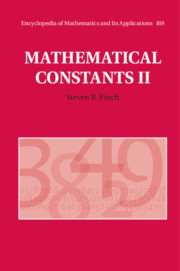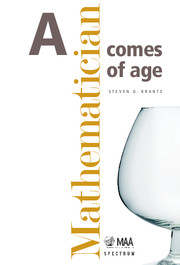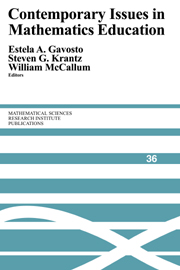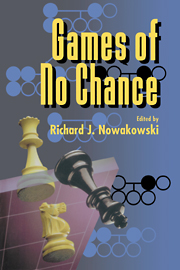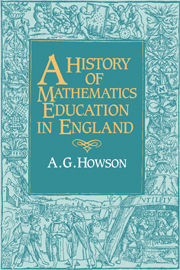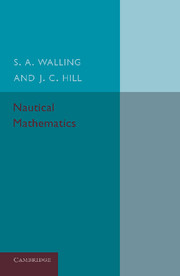Assessing Mathematical Proficiency
CAD$55.95 (P)
Part of Mathematical Sciences Research Institute Publications
- Editor: Alan H. Schoenfeld, University of California, Berkeley
- Date Published: May 2007
- availability: Available
- format: Paperback
- isbn: 9780521697668
CAD$
55.95
(P)
Paperback
Other available formats:
Hardback, eBook
Looking for an examination copy?
This title is not currently available for examination. However, if you are interested in the title for your course we can consider offering an examination copy. To register your interest please contact [email protected] providing details of the course you are teaching.
-
Testing matters! It can determine kids' and schools' futures. In a conference at the Mathematical Sciences Research Institute, mathematicians, math education researchers, teachers, test developers, and policymakers gathered to work through critical issues related to mathematics assessment. This volume presents the results of the discussions. It highlights the kinds of information that different assessments can offer, including many examples of some of the best mathematics assessments worldwide. A special feature is an interview with a student about his knowledge of fractions and a demonstration of what interviews (versus standardized tests) can reveal.
Read more- Offers examples of very different ways to understand what students know in mathematics
- A 'live' interview with a student and what it reveals about understanding
- Reveals what testing does and does not tell you and can tell you
Reviews & endorsements
"Anyone interested in the current state of assessment in mathematics education will find this book relevant."
Scott A. Fellows, Mathematics TeacherSee more reviews"The book... is though provoking. The authors succeed in showing the complexity of the problem of assessing mathematical proficiency and the difference, sometimes dramatic, in the perception of this issue by various stakeholders. The majority of them convincingly argue in favor of tasks and procedures that would go beyond simple computational or operational abilities."
Alex Kozulin, American Journal of PsychologyCustomer reviews
Not yet reviewed
Be the first to review
Review was not posted due to profanity
×Product details
- Date Published: May 2007
- format: Paperback
- isbn: 9780521697668
- length: 412 pages
- dimensions: 235 x 156 x 23 mm
- weight: 0.574kg
- availability: Available
Table of Contents
Preface Alan H. Schoenfeld
Part I. The Big Picture:
1. Issues and tensions in the assessment of mathematical proficiency Alan H. Schoenfeld
2. Crucial contemporary social, political, and cultural issues in mathematical assessment in the United States Judith Ramaley
3. Crucial contemporary social, political, and cultural issues in mathematical assessment in the United States Susan Sclafani
Part II. Perspectives on Mathematical Proficiency:
4. What is mathematical proficiency? R. James Milgram
5. What is mathematical proficiency (and how can it be assessed)? Alan H. Schoenfeld
Part III. What Does Assessment Assess? Issues and Examples:
6. Assessing mathematical proficiency: what is important? Hugh Burkhardt
7. Aspects of the art of assessment design Jan de Lange
8. Mathematical proficiency for citizenship Bernard Madison
9. Learning from assessment Richard Askey
10. Using assessment to design professional development David Foster
Part IV. The Case of Algebra:
11. Context and learning: an assessment of 'real world' mathematics tasks Ann Shannon
12. Making meaning in algebra: examining students' understandings and misconceptions David Foster
13. Assessing the strands of student proficiency in elementary algebra William McCallum
Part V. What Do Different Assessments Assess?:
14. Learning about fractions from assessment Linda Fisher
15. Brandon interview and commentary, plus CD of interview Deborah Ball
Part VI. The Importance of Context:
16. Assessment of mathematics learning in France Michele Artigue
17. Assessment to improve learning in mathematics: the BEAR assessment system Mark Wilson and Claus Carstensen
18. English learners and math learning: language issues for the math educators to consider Lily W. Fillmore
19. Beyond words to mathematical content: assessing English language learners in the mathematics classroom Judit Moschkovich
20. Assessment in the real world: the case of New York city Elizabeth Taleporos
21. Perspectives on state assessments in California Elizabeth Stage
Part VII. What Do We Need To Know?:
22. Research agenda emerging from the conference.
Sorry, this resource is locked
Please register or sign in to request access. If you are having problems accessing these resources please email [email protected]
Register Sign in» Proceed
You are now leaving the Cambridge University Press website. Your eBook purchase and download will be completed by our partner www.ebooks.com. Please see the permission section of the www.ebooks.com catalogue page for details of the print & copy limits on our eBooks.
Continue ×Are you sure you want to delete your account?
This cannot be undone.
Thank you for your feedback which will help us improve our service.
If you requested a response, we will make sure to get back to you shortly.
×

